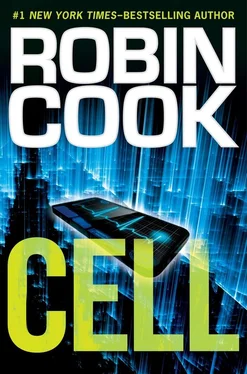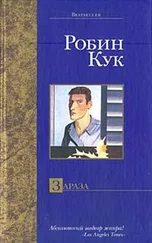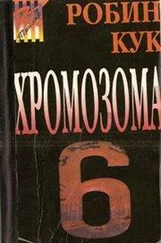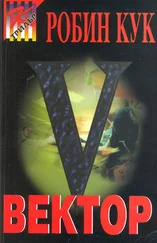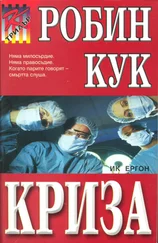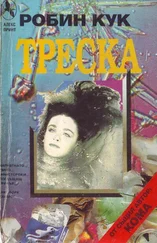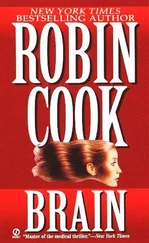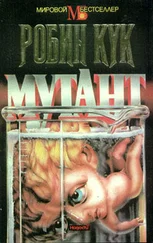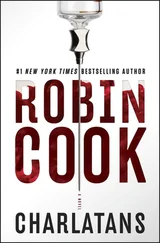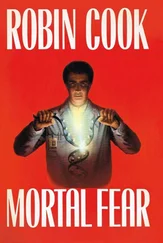George was taken aback. Tarkington felt empathy and compassion toward him , the doctor. George experienced a moment of profound guilt.
Tarkington shrugged and looked at the ground. “Life has its challenges,” he said, raising his eyes to George’s.
“It does.” George was at a loss. “You seem to me like a person who meets the challenge,” he finally added after a pause. He was awed by Tarkington’s courage and wondered if he would have the same, were the situation reversed. He also wondered if it wouldn’t have been better if the man hadn’t had the MRI.
“Well, I’m not going to roll over without a fight. It’s going to have to take me kicking and screaming.”
George found himself thinking that under different circumstances he and Tarkington could have been friends. He admired the guy, even admitted to himself that he liked him. George also wondered if he really had what it took to be a good doctor. Seeing people confront their mortality was unsettling at a very deep level.
“I’m sure your doctor has a plan of action,” George said. “There’s more than one way to beat these things.”
Tarkington nodded. “Well... thanks. I appreciate what you doctors do. But I need to get home and think this through.” He gave George’s arm a squeeze as he walked past. It was a melancholy sort of gesture reflecting a human need to connect.
As George watched the man walk away, he wondered if he could have offered more support. Then he turned and entered the hospital, thinking how much easier it was to spend time with Tarkington’s MRI printout than with the man himself. It was so much less emotional, so much more scientific, and so much more an intellectual exercise. Yet ultimately it was about another human being, and in this situation it was like being responsible for the man’s getting a death sentence. George shuddered. That was the part he really didn’t want to think about. Maybe even radiology wasn’t safe enough for him. What if he had taken the same MD-MBA course that Paula had taken? If he had, he might be living in a Santa Monica house with a pool and driving a new Porsche Carrera without ever having to be touched, however obliquely, by something like pancreatic cancer.
George walked into the MRI control room, where Claudine and another technician, Mark Sands, were in the midst of a study. Mark was an African American with whom George had spent a lot of time. Of all the technicians, Mark understood the MRI best in all its technological subtleties. Under his guidance images progressively wiped across the screen, generating anatomical slices of a human body in a fashion that never failed to astound George. Claudine glanced up and gave George a thumbs-up, which George interpreted to mean that things had gone well during his absence.
George raised his eyes and glanced through the observation window at the huge, doughnut-shaped magnet. He could see the feet and lower legs of a woman protruding from the MRI. He guessed from the woman’s position that it was another abdominal study.
With the equipment on autopilot under the watchful eye of Mark, Claudine took a moment to quickly review what had transpired during George’s absence. It was confirmed that there had not been any problems and no one had come looking for him, which eased George’s residual anxiety. Soon he was feeling entirely relieved about having been out. Clearly he had not been missed.
Using a monitor, Claudine went through the images of a torn ACL, which had been the first case she’d done with Susan’s assistance after George had left. Next she showed George a bothersome lower back done with Mark’s help. In both cases the tests were diagnostic and well done.
“What’s up with this current case?” George asked, nodding toward the patient in the adjacent room.
“Her name is Claire Wong. She’s forty-three years old and has a history of lobular breast cancer. She’s been treated with a mastectomy and chemotherapy combined with radiation. Although she’s currently asymptomatic, her oncologist wanted the abdominal MRI, just to be certain there aren’t any additional problems. So far it looks good.”
George nodded again, feeling an uptick from the unease the encounter with Tarkington had generated. The idea of another cancer case made him feel superstitiously uneasy. Moving over to Mark, he looked over the man’s shoulder at the most recently formed image. To his chagrin he immediately noticed something that Claudine had missed. “Uh-oh! That doesn’t look so good. It seems that there is some definite retroperitoneal thickening. Can you guys see it?”
“I think so, now that you’ve pointed it out,” Claudine said. She took a laser pointer from her pocket and outlined what she thought George was referring to.
“That’s it. Let’s review some of the previous slices,” George suggested.
Mark pulled them up. George studied them closely, then pointed at a portion of the small intestine. “There’s thickening of the bowel wall as well.” George used his finger to trace along the problem segment.
Again Claudine and the technician could see the condition after George pointed it out.
George shuddered inwardly. This case was as bad as Greg Tarkington’s in terms of its implications for the patient, but George’s thoughts were interrupted. Suddenly the door opened and Clayton Hanson poked his head in.
“Can I have a word, George?”
“Sure,” George replied as he felt a quickening of his pulse. He could only guess that Clayton had seen him at the presentation after all. As George headed for the door he tried to think of a plausible excuse for having left the hospital without getting permission and without formally signing out. Nothing came to mind. He knew he was considered one of the best radiology residents. Clayton himself had said so. Was he ever going to grow up about facing authority figures? After all it had been a medically oriented event, he had covered his responsibilities, and Clayton had been there himself.
“I noticed you over at the Amalgamated event,” the older doctor said sotto voce as George joined him in the hall. There were a number of passersby.
“Yeah. I saw you, too,” George said. At least Clayton wasn’t saying it in a confrontational manner. That was a surprise. And a relief.
“What did you think?”
“Well, it’s quite a bit to digest.” George searched his mind for a diplomatic response since he hadn’t decided exactly what his feelings were. And he had no idea why Clayton would ask him such an open-ended question.
As George hesitated Clayton went on. “Well, let me tell you what I think. Amalgamated wouldn’t be a bad stock for a young man to invest in, if that was why you were there.”
Rather than respond, since Clayton knew full well that George had no money, George said, “What’s your involvement?”
Clayton studied George a moment before answering. “I have a sizable investment position in Amalgamated. I was involved with an earlier generation of iDoc, helping them look at it from the imaging perspective.”
“That got you onstage?” It was a bold question. Clayton could easily take offense. But the question was nagging at George.
Clayton paused before answering, as if measuring his response. “Thorn and I have come to know each other well over the years. Actually, he’s my brother-in-law. He’s married to my younger sister. After all the family time spent together and the inevitable health-care-related discussions, he’s come to trust my medical instincts.” Clayton studied George’s face for a reaction. George gave none. He wasn’t going to intimate, even with his expression, that nepotism was the reason that Clayton had such a prestigious seat at the event. George was a realist. The guy could seriously impair George’s radiology career if he chose to do so.
Читать дальше
